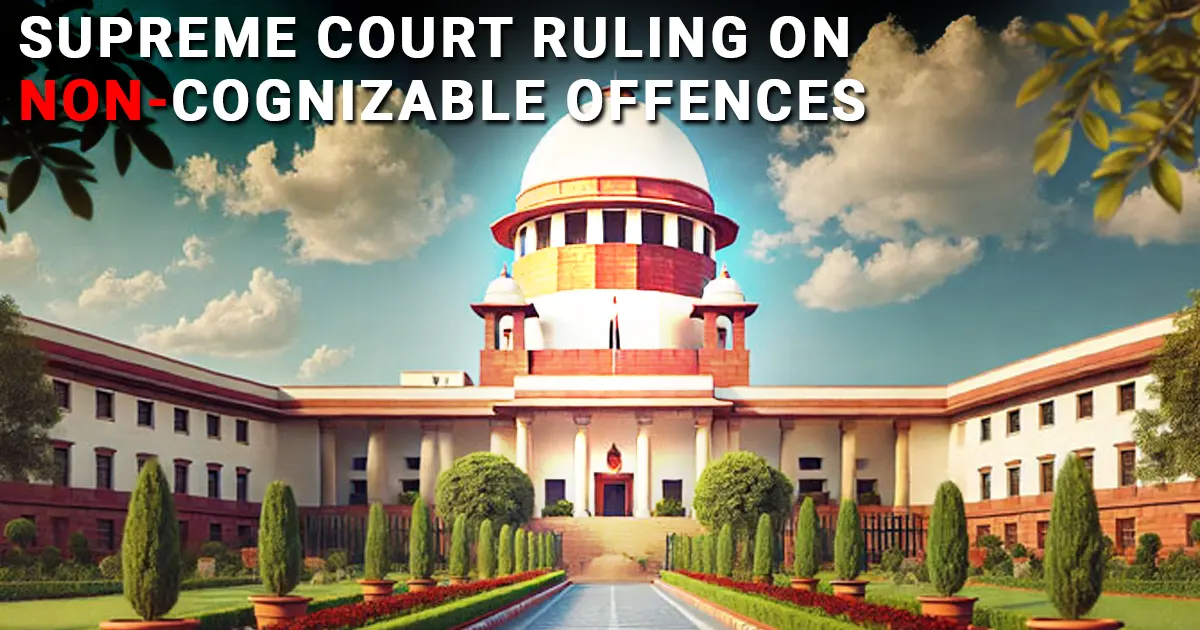PRELIMS BITS

In January 2025, the Supreme Court of India clarified the procedures for police investigations into cognizable and non-cognizable offences. The ruling emphasised the safeguards for non-cognizable offences, which require judicial oversight before police action.
- Cognizable vs Non-Cognizable Offences:
- Cognizable offences allow police to investigate without prior approval.
- Non-cognizable offences require a magistrate’s order for investigation.
- Legal Safeguards: Non-cognizable offences have built-in safeguards to protect citizens’ liberties. Investigations must be vetted by a legally trained individual and conducted in the presence of a Judicial Magistrate.
- Role of Public Servants: For non-cognizable offences involving public servants, a complaint from the affected public servant is required to initiate the investigation. Without this complaint, police cannot act.
- Section 195 of the Criminal Procedure Code: This section mandates that complaints for certain offences, including those involving public servants, must be directed to a Judicial Magistrate, not an Executive Magistrate.
- Implications of the Ruling: The ruling reinforces judicial oversight in non-cognizable offences and the need to follow proper legal channels for police investigations.




